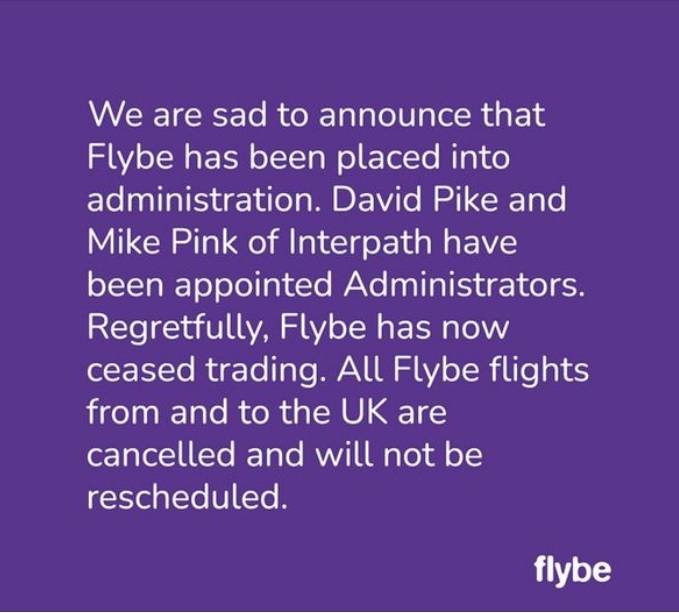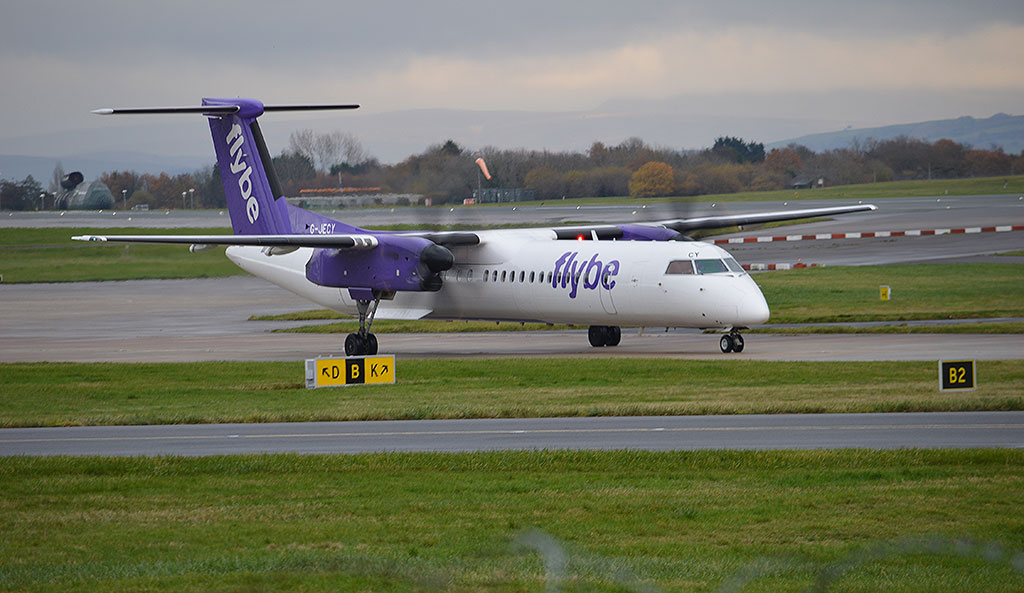Less than a year after returning to the skies, Flybe has gone into administration, with all of its scheduled flights cancelled. This new Flybe, or Flybe 2.0 to distinguish it from the first iteration which folded in May 2020, began operating in April 2022 using a fleet of four Bombardier Dash 8-Q400 aircraft.
Flybe Limited was formed in April 2021 after Thyme Opco Limited, a company affiliated to investment adviser Cyrus Capital, completed the purchase of the former Flybe business and some assets from the administrator. The new airline didn’t launch during the summer 2021 as originally planned, partly due to ongoing coronavirus-related travel restrictions and also the need to amass a fleet of aircraft and recruit new employees. David Pflieger was appointed as the CEO of the new Flybe and Birmingham Airport became the site of the company’s headquarters and operations centre.
Flybe 2.0 launched in April 2022 with a planned phased introduction of 23 routes that summer, involving up to 530 rotations per week. The network spanned 16 airports in the UK, France and the Netherlands. Delays in the delivery of additional aircraft from leasing companies led to some reduction in the frequency of flights and delays in the start of planned city pairings from both of its Birmingham and Belfast bases. The winter schedule 2022/23 comprised 12 destinations including new routes from Heathrow and Manchester to Newquay and a weekend service to Geneva from Birmingham.

Although the reason for the collapse has yet to be disclosed, it is probably linked with rising operational costs and a challenging market place, with low passenger loads on Flybe’s flights. The price of aviation fuel almost doubled during 2022, accounting for 20-25% of the operational costs of an airline. Although Flybe 2.0 has not released any data on performance since beginning operations, information available from the CAA suggests that between May and November 2022, the load factor for scheduled domestic flights ranged from 44.2% to 53.4% and for scheduled international and European flights it was between 51% and 65.4%.
Flybe 2.0 had a fleet of 13 Bombardier Dash 8-Q400s and reportedly employed 321 staff, of which 44 have been retained to date.
Title Photo:
Bombardier (de Havilland) Dash 8-Q402, G-JECY, at Manchester Airport in December 2022 (Photo: Nigel Richardson)
 Flybe Book
Flybe Book
A new book laumched this week looks at the history of Flybe in all its forms, from its inception as Jersey European Airways in 1979, through the collapse in 2020 and subsequent relaunch.
Flybe; Airlines Series, Vol 12
Authored by: Nigel Richardson


 Flybe Book
Flybe Book


1 comment
In a way, sorry to see them cease operations…again. Had flown 20 sectors with them over the years on the Q400, E175 and 195, and always pretty much on time.
However they did have, an almost unbelievable high baggage rate, and no mercy, if you wished to change flights, even on the same sector, same day. So in that respect, they were ruthless.